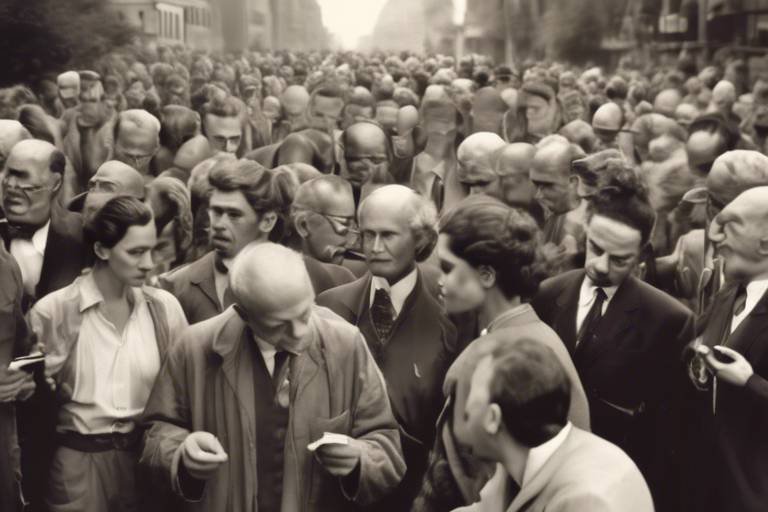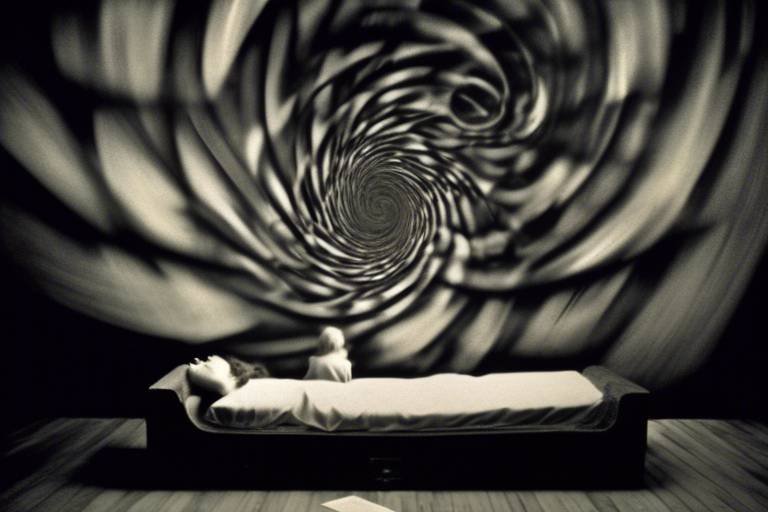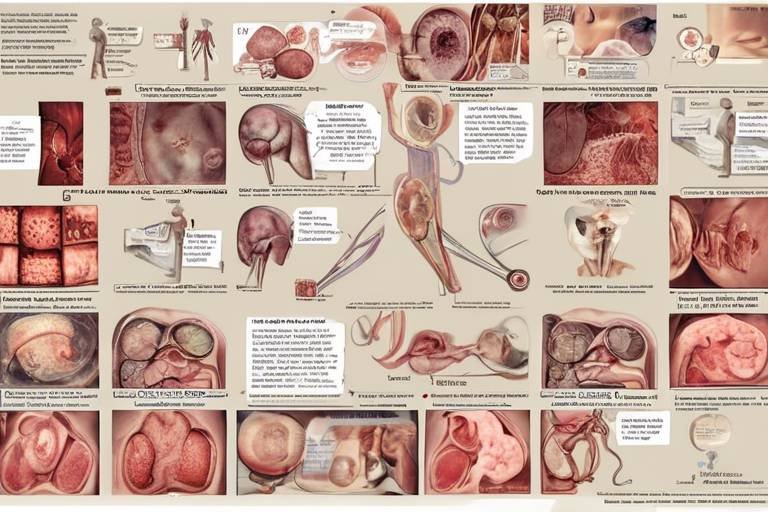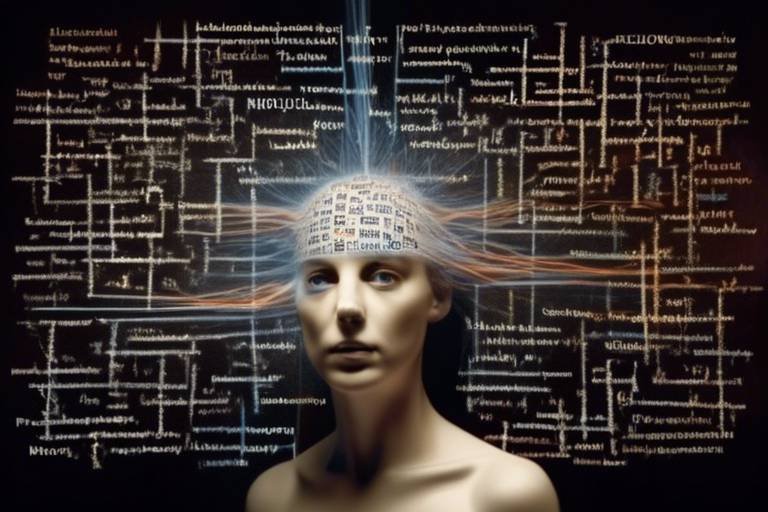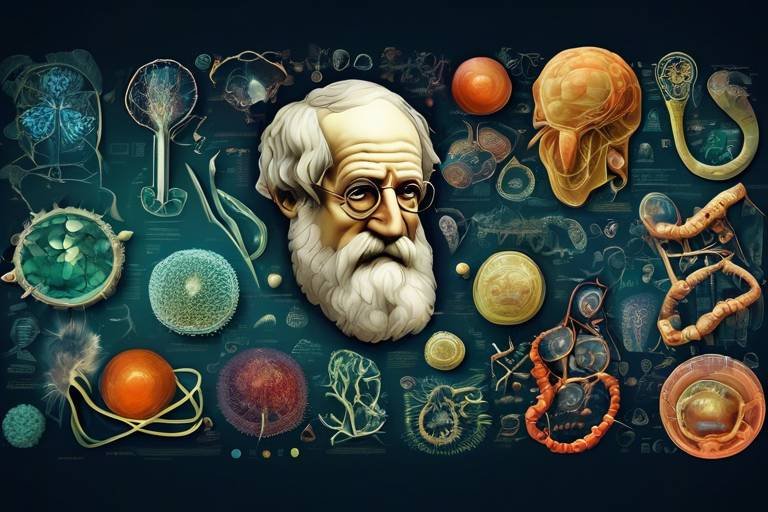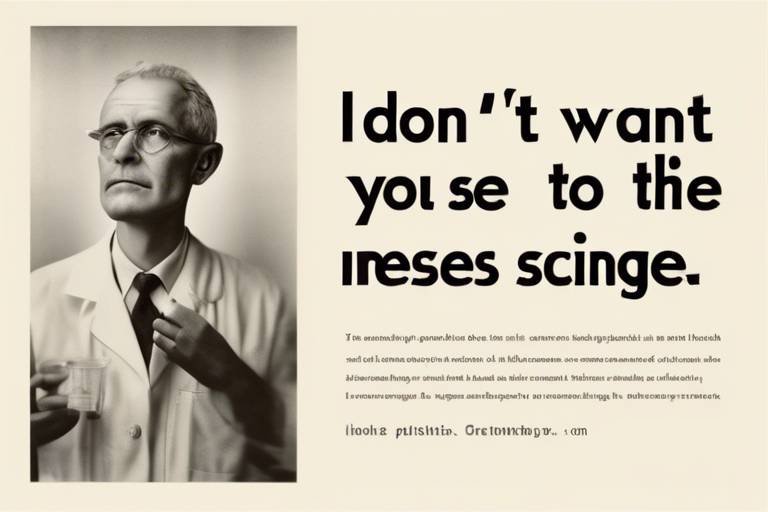The Philosophy and Science Behind Human Recollection
Memory is not just a simple storage system; it’s a complex tapestry woven from threads of experience, emotion, and cognition. The exploration of memory invites us to delve into both the philosophical theories that seek to understand our conscious experience and the scientific findings that reveal the intricate workings of the brain. By examining how recollection shapes our identity and understanding of the world, we can appreciate the profound impact that memory has on our lives.
At its core, memory is a multifaceted phenomenon. It encompasses various types, including episodic memory, which allows us to recall specific events; semantic memory, which relates to our knowledge of facts and concepts; and procedural memory, which involves skills and actions we perform without conscious thought. Each type of memory plays a unique role in how we navigate our daily lives. For instance, think about how you can ride a bike (procedural memory) while also recalling the last time you rode one on a sunny day (episodic memory). This interplay of memory types not only enriches our experiences but also helps to define who we are as individuals.
The philosophy of memory raises intriguing questions: What does it mean to remember? Are our memories reliable? These questions have led to various philosophical debates, with some arguing that memory is a form of personal identity, while others suggest that it can be deceptive. The scientific perspective, meanwhile, seeks to unravel the mechanisms behind memory formation and retrieval. Through advancements in neuroscience, we have begun to understand the biological underpinnings of memory, revealing how specific brain structures and neurotransmitters contribute to our ability to remember.
As we dive deeper into the relationship between philosophy and science, it becomes evident that memory is not merely a passive record of our past. Instead, it is an active process influenced by numerous factors, including emotions and context. For example, have you ever noticed how a particular song can transport you back to a specific moment in time? This phenomenon highlights the emotional weight that memories can carry, further complicating our understanding of what it means to recall an event. In the sections that follow, we will explore these themes in greater depth, examining how memory is shaped by emotion, context, and even the fallibility of our recollections.
Memory is a multifaceted phenomenon that encompasses various types, including episodic, semantic, and procedural memory. Understanding these categories helps to clarify how we store and retrieve information.
Emotions significantly influence our ability to remember events. This section delves into how emotional experiences can enhance or impair memory retention and recall.
Cognitive theories explain how our thoughts about emotional experiences shape our memories. This subsection investigates key theories and their implications for understanding memory.
The James-Lange theory posits that emotions arise from physiological responses. This perspective offers insights into how bodily reactions can affect memory formation.
The Cannon-Bard theory suggests that emotions and physiological reactions occur simultaneously. This view has implications for how we remember emotionally charged events.
Contextual factors play a crucial role in memory retrieval. This section examines how environmental cues and situational contexts can facilitate or hinder recollection.
Memory is not always accurate; it can be influenced by various factors leading to distortion. This section explores the phenomenon of false memories and their implications for our understanding of recollection.
Several factors contribute to memory distortion, including suggestion, misinformation, and the passage of time. This subsection analyzes how these elements can alter our recollections.
False memories can have significant legal repercussions, particularly in eyewitness testimonies. This subsection discusses the challenges posed by unreliable memories in the judicial system.
Recent advancements in neuroscience have shed light on the biological underpinnings of memory. This section explores brain structures and processes involved in memory formation and retrieval.
The hippocampus plays a vital role in forming new memories. This subsection examines its functions and how damage to this area can affect recollection.
Neurotransmitters like dopamine and acetylcholine are crucial for memory processes. This section discusses how these chemicals influence learning and memory retention.
- What are the different types of memory?
Memory can be categorized into episodic, semantic, and procedural types, each serving different functions in our lives. - How do emotions affect memory?
Emotions can enhance or impair memory retention, influencing how we recall events. - Can memories be distorted?
Yes, memories can be altered by suggestion, misinformation, and the passage of time, leading to false recollections. - What role does the hippocampus play in memory?
The hippocampus is essential for forming new memories and is a key structure in the brain's memory system. - How do neurotransmitters affect memory?
Neurotransmitters like dopamine and acetylcholine are vital for memory processes, influencing learning and retention.

The Nature of Memory
Memory is a multifaceted phenomenon that shapes our understanding of the world and ourselves. It’s not just a simple filing cabinet where we store experiences; rather, it's a complex web of interconnected systems and processes. To truly appreciate memory, we need to delve into its various types, which include episodic, semantic, and procedural memory. Each type serves a unique purpose and plays a critical role in how we navigate our daily lives.
Episodic memory is like a personal diary that records specific events and experiences. Imagine flipping through a photo album filled with snapshots of your life—each image evokes a particular moment, complete with emotions and sensory details. This type of memory allows us to recall not just what happened, but also when and where it occurred, creating a rich tapestry of our personal history.
On the other hand, semantic memory functions more like a general encyclopedia. It encompasses our knowledge about the world, including facts, concepts, and meanings. For instance, knowing that Paris is the capital of France or understanding the concept of gravity falls under semantic memory. This type of memory is crucial for learning and communication, as it helps us make sense of the information we encounter daily.
Lastly, we have procedural memory, which is all about the skills we've acquired over time, like riding a bicycle or playing a musical instrument. Think of it as the muscle memory that allows us to perform tasks without consciously thinking about them. It’s fascinating how you can hop on a bike after years of not riding and still remember how to balance and pedal smoothly. This type of memory is often automatic and is developed through repetition and practice.
These categories of memory are interconnected, and understanding their distinctions helps clarify how we store and retrieve information. For example, when you learn a new skill (procedural memory), you might also recall specific instances when you practiced it (episodic memory) while understanding the underlying concepts (semantic memory). This interplay between different types of memory highlights the complexity of human recollection.
Moreover, memory isn't static; it's a dynamic process that can be influenced by various factors. Our memories can be shaped by our experiences, emotions, and even the context in which we recall them. This fluidity can be both a blessing and a curse, as it allows us to adapt and grow but can also lead to distortions and inaccuracies. So, the next time you reminisce about a past event, remember that your recollection is not just a snapshot of reality but a constantly evolving narrative influenced by countless variables.

The Role of Emotion in Recollection
This article explores the intricate relationship between philosophical theories and scientific findings regarding human memory, examining how recollection shapes our identity and understanding of the world.
Memory is a multifaceted phenomenon that encompasses various types, including episodic, semantic, and procedural memory. Understanding these categories helps to clarify how we store and retrieve information.
Have you ever noticed how certain memories can send a rush of feelings through you, almost as if you’re reliving the moment? Emotions play a pivotal role in how we remember events, acting as a lens that can either sharpen or blur our recollections. When we experience something emotionally charged, our brains are wired to prioritize those memories, making them more vivid and easier to retrieve later. This is because emotions trigger the release of neurotransmitters, which enhance the encoding of these memories. Think about it: when you think back to your first love or a significant life event, the emotions tied to those moments often come rushing back, almost like a tidal wave.
But it’s not just about the happy moments; emotions can also cloud our memories. For instance, if you’ve ever been in a stressful situation, you might find that your recollection of the event is fragmented or distorted. This duality of emotion’s influence on memory—enhancement and impairment—shows just how complex our recollective processes are. Some researchers even suggest that emotional memories can be so powerful that they become a part of our identity. They shape how we see ourselves and influence our future decisions.
So, how do our thoughts about emotional experiences shape our memories? Cognitive theories provide insight into this intricate dance between emotion and recollection. They argue that our interpretations of emotional events significantly affect how we remember them. For instance, if you perceive a challenging experience as a failure, the way you remember it might be tainted by feelings of shame or regret. Conversely, if you see it as a learning opportunity, you might recall it with a sense of growth and resilience.
One fascinating perspective is the James-Lange theory, which posits that our emotions arise from physiological responses. In other words, we don’t cry because we’re sad; we feel sad because we cry. This theory suggests that our bodily reactions to situations can influence how we remember them. Imagine you’re at a concert, and the music stirs you so deeply that you feel goosebumps. Later, when you recall that night, the physical sensations may enhance your emotional memory, making it more vivid.
On the flip side, the Cannon-Bard theory suggests that emotions and physiological reactions occur simultaneously. This means that when you experience something intense, like a thrilling roller coaster ride, your heart races and you feel exhilarated at the same time. This simultaneous experience can create a powerful memory, as both your body and mind are engaged in the moment. The implications of these theories are profound, as they highlight how our understanding of emotional experiences can shape our memories in different ways.
Context matters, too! The environment in which we experience emotions can significantly impact how we remember them. For instance, a joyful memory experienced at a family gathering might feel different when recalled in the solitude of your room. Environmental cues—like the scent of a favorite dish or the sound of laughter—can act as triggers, bringing memories flooding back. Conversely, if you’re in a stressful environment, it might hinder your ability to recall happier times.
Memory is not always accurate; it can be influenced by various factors leading to distortion. This section explores the phenomenon of false memories and their implications for our understanding of recollection.
Several factors contribute to memory distortion, including suggestion, misinformation, and the passage of time. This subsection analyzes how these elements can alter our recollections.
False memories can have significant legal repercussions, particularly in eyewitness testimonies. This subsection discusses the challenges posed by unreliable memories in the judicial system.
Recent advancements in neuroscience have shed light on the biological underpinnings of memory. This section explores brain structures and processes involved in memory formation and retrieval.
The hippocampus plays a vital role in forming new memories. This subsection examines its functions and how damage to this area can affect recollection.
Neurotransmitters like dopamine and acetylcholine are crucial for memory processes. This section discusses how these chemicals influence learning and memory retention.
- How do emotions affect memory? Emotions can enhance or impair memory retention and recall, influencing how vividly we remember events.
- What are the main theories of emotion in relation to memory? The James-Lange theory and the Cannon-Bard theory offer different perspectives on how emotions and physiological responses interact.
- Can memories be distorted? Yes, various factors, including suggestion and misinformation, can lead to memory distortion.
- What role does the hippocampus play in memory? The hippocampus is crucial for forming new memories and retrieving past experiences.

Cognitive Theories of Emotion
The intricate dance between our thoughts and emotions is fascinating, especially when it comes to how we remember experiences. Cognitive theories of emotion provide a framework for understanding this relationship, suggesting that our interpretations and perceptions of emotional experiences significantly influence our memories. Imagine a time when you felt an overwhelming sense of joy or sadness; the way you think about that moment can shape how vividly you recall it later. This interplay is crucial because it highlights that memory is not just a simple recording of events but a complex reconstruction influenced by our emotional state.
One key aspect of these theories is the notion that emotions are not merely reactions but are constructed through cognitive processes. For instance, when we experience a significant event, our brain evaluates the situation, and this evaluation can enhance or impair our memory. The more intense the emotion, the more likely we are to remember the details. However, this can also lead to biases in how we recall events, as our current feelings can color our memories. For example, if you're feeling particularly anxious, you might remember a past event as more negative than it actually was. This phenomenon is known as emotional memory bias.
Among the prominent cognitive theories is the Schachter-Singer Two-Factor Theory, which posits that emotion is based on physiological arousal and cognitive interpretation. According to this theory, when we encounter an emotional stimulus, our body reacts first, and then our mind interprets this reaction. This means that if you see a bear in the woods, your heart races (physiological arousal), and then your mind processes that fear, leading to the emotional experience of fear itself. This connection underscores the idea that how we label our emotions can significantly affect our memories of the event.
Furthermore, the Cognitive Appraisal Theory, developed by Richard Lazarus, emphasizes that our emotional responses are determined by our evaluation of a situation. This appraisal process involves assessing whether an event is a threat or a challenge, which then influences how we remember it. For instance, if you view a challenging exam as an opportunity to prove your knowledge, you may remember the experience more positively compared to if you see it as a threat to your self-esteem. Thus, our cognitive evaluations can either enhance or diminish the emotional weight of our memories.
In summary, cognitive theories of emotion reveal that our thoughts play a pivotal role in shaping our memories. By understanding this relationship, we can gain insights into why we remember certain events more vividly than others and how our emotional state can distort our recollections. This understanding is not just academic; it has practical implications for how we navigate our emotional lives and interact with the world around us.

The James-Lange Theory
The James-Lange Theory of emotion presents a fascinating perspective on how we experience feelings. According to this theory, our emotions are not the initial response; rather, they are a result of our physiological reactions to stimuli. For example, imagine you’re walking in a dark alley and suddenly hear footsteps behind you. Your heart races, palms sweat, and you feel a rush of adrenaline. According to the James-Lange Theory, it is not the fear that causes these physical responses, but rather the physical responses that create the feeling of fear. It’s like saying, “I’m shaking because I’m scared,” instead of “I’m scared because I’m shaking.”
This theory, proposed by psychologist William James and physiologist Carl Lange in the late 19th century, fundamentally shifted how we understand the connection between body and mind. It implies that our emotional experiences are directly tied to our bodily states. This can be particularly intriguing when considering how this affects memory formation. When we experience heightened physiological responses, such as increased heart rate or rapid breathing, these sensations can become intertwined with the memories we form at that moment. Thus, the more intense the physical reaction, the more vivid and memorable the associated experience may become.
However, it’s important to note that the James-Lange Theory has its critics. Some argue that it oversimplifies the complex nature of emotions. For instance, emotional experiences can sometimes occur without corresponding physiological changes. Additionally, consider situations where two individuals experience the same physiological response but report different emotions. This raises questions about the universality of the theory. Can we truly say that our emotions are purely the result of our physiological states?
Despite these criticisms, the James-Lange Theory remains a significant part of the conversation surrounding emotion and memory. It encourages us to think about how our bodies react to the world around us and how those reactions shape our experiences. As we delve deeper into the relationship between emotion and memory, we can better understand the intricate dance between our physical states and our mental recollections.
- What is the James-Lange Theory?
The James-Lange Theory posits that emotions arise from physiological reactions to stimuli, suggesting that we feel emotions as a result of our bodily responses.
- How does this theory relate to memory?
According to the theory, intense physiological responses can enhance memory retention, making emotionally charged events more memorable.
- Are there any criticisms of the James-Lange Theory?
Yes, critics argue that the theory oversimplifies emotions and does not account for situations where emotions occur without corresponding physiological changes.

The Cannon-Bard Theory
The Cannon-Bard Theory offers a fascinating perspective on how we experience emotions and how these emotions interact with our memory. Proposed by psychologists Walter Cannon and Philip Bard in the early 20th century, this theory suggests that emotional responses and physiological reactions occur simultaneously rather than sequentially. In other words, when we encounter a stimulus that triggers an emotional response, our brain processes this information in such a way that we feel the emotion and experience the physiological changes—like increased heart rate or sweating—at the same time.
This simultaneous reaction challenges the earlier James-Lange Theory, which posited that we first experience physiological changes and then interpret these changes as emotions. To illustrate this, think about a situation where you see a snake. According to the Cannon-Bard Theory, the sight of the snake would trigger both fear and the physiological response (like a racing heart) at the same moment. This theory emphasizes that our brain plays a crucial role in processing emotions, suggesting that the thalamus acts as a relay station for sensory information, sending signals to both the cortex (which processes the emotional experience) and the autonomic nervous system (which regulates physiological responses).
Understanding the Cannon-Bard Theory has significant implications for how we comprehend memory, especially in the context of emotionally charged events. When we recall a memory associated with a strong emotion, such as joy from a wedding or fear from an accident, both the emotional experience and the physiological response are encoded in our memory. This dual encoding can enhance the vividness of our recollections, making them more memorable. For instance, if you remember your wedding day, you might not only recall the joy you felt but also the physical sensations of excitement—like butterflies in your stomach.
Moreover, this theory opens up discussions about the reliability of emotional memories. Since emotions can influence the way we remember events, it raises questions about the accuracy of our recollections. If our emotional state at the time of recalling a memory is different from when the event occurred, it may color our perception of that memory. This interplay between emotion and memory is crucial in various fields, including psychology, education, and even law enforcement.
In summary, the Cannon-Bard Theory provides a compelling framework for understanding the complex relationship between emotion and memory. By recognizing that emotional experiences and physiological reactions occur simultaneously, we gain deeper insights into how memories are formed and recalled. This understanding is not just academic; it has real-world applications that can enhance our personal lives, improve therapeutic practices, and even influence legal proceedings.
- What is the main difference between the Cannon-Bard Theory and the James-Lange Theory?
The main difference lies in the sequence of emotional experience and physiological response. The Cannon-Bard Theory states that both occur simultaneously, while the James-Lange Theory suggests that the physiological response precedes the emotional experience. - How does the Cannon-Bard Theory relate to memory?
The theory implies that simultaneous emotional and physiological responses during an event can enhance the encoding of that memory, making it more vivid and easier to recall later. - Are there any practical applications of the Cannon-Bard Theory?
Yes, understanding this theory can improve therapeutic practices, enhance learning experiences, and inform legal strategies regarding eyewitness testimonies.

The Influence of Context on Memory
Have you ever walked into a room and suddenly recalled a memory that seemed to be triggered by the environment around you? This phenomenon is known as context-dependent memory, and it's a fascinating aspect of how our brains work. Context plays a crucial role in how we retrieve memories, acting like a key that unlocks the door to our past experiences. When we encounter specific cues in our surroundings, they can either enhance or hinder our ability to recollect information. It's almost as if our memories are intertwined with the tapestry of our experiences, each thread representing a different context.
To better understand the influence of context on memory, let's break it down into a few key elements:
- Environmental Cues: These are physical aspects of our surroundings—like sounds, smells, or sights—that can trigger memories. For instance, the scent of freshly baked cookies might remind you of your grandmother's kitchen.
- Emotional State: Our mood can significantly affect how we recall memories. If you’re feeling happy, you might remember positive experiences more vividly than negative ones, and vice versa.
- Social Context: The presence of other people can also impact memory retrieval. Being with friends might help you remember shared experiences better than if you were alone.
Research has shown that when we learn something in a specific context, we're more likely to remember it when we return to that same context. This is why students often perform better on exams when they take them in the same location where they studied. The environment acts as a cue, helping to jog the memory and bring relevant information to the forefront of our minds. Imagine studying for a test in your favorite coffee shop; the sounds and smells of that place might just be the triggers you need to recall information during the exam.
However, context isn’t always a reliable ally. Sometimes, being in a different environment can lead to what is known as context-dependent forgetting. This occurs when the cues that were present during the learning phase are absent during recall, making it harder to retrieve the information. Think of it like trying to find a book in a library where the shelves have been rearranged; the familiar context that once guided you is now gone, leaving you feeling lost.
Moreover, the influence of context can also extend to the emotional weight of the memories. For example, if you experienced a traumatic event in a specific location, returning to that place might evoke strong feelings and memories associated with that experience. This is particularly relevant in therapy settings, where revisiting certain contexts can help individuals process their emotions and memories more effectively.
In summary, the context in which we learn and remember information is a powerful factor that shapes our recollection. Whether it's the physical environment, emotional state, or social setting, these elements can significantly enhance or impair our ability to recall memories. Understanding this influence not only enriches our appreciation for how memory works but also opens doors to improving our learning and recall strategies in everyday life.
- What is context-dependent memory?
Context-dependent memory refers to the phenomenon where the ability to recall information is influenced by the environment in which it was learned. - Can emotions affect memory retrieval?
Yes, emotions can significantly influence memory retrieval. Our mood at the time of recall can determine how vividly we remember past experiences. - How can I improve my memory recall?
To enhance memory recall, try studying in the same environment where you will be tested, and use emotional cues to create stronger associations with the information.

Memory is a fascinating yet perplexing aspect of the human experience. While we often think of our memories as reliable records of past events, the reality is far more complex. Memory distortion refers to the alteration of recollections, where details may become skewed or entirely fabricated over time. This phenomenon raises important questions about the reliability of our memories and how they shape our understanding of reality. Imagine a game of telephone, where a message is whispered from one person to the next; by the end, the original message often bears little resemblance to what was first said. Similarly, our memories can be influenced by numerous factors, leading to distortions that can affect everything from personal identity to legal outcomes.
One of the most intriguing aspects of memory distortion is the concept of false memories. These are recollections of events that either did not happen or occurred differently than we remember. Research has shown that false memories can be created through suggestion, misinformation, and even the passage of time. For instance, if someone hears a misleading account of an event they witnessed, their memory of that event can become tainted. This is particularly concerning in situations like eyewitness testimonies, where the stakes are high, and the accuracy of memory can determine the outcome of a trial.
Several factors contribute to the creation of false memories. To better understand this, consider the following:
- Suggestion: The way questions are phrased can lead individuals to recall events inaccurately. For example, asking someone if they saw a blue car at an accident scene might implant the idea of a blue car in their memory, even if there was none.
- Misinformation: Exposure to incorrect information after an event can alter our memories. This often happens through media reports or conversations with others.
- Time: The longer we wait to recall an event, the more likely our memories are to change. Memories can fade or become intertwined with other experiences.
The implications of memory distortion and false memories are profound, especially in legal contexts. Eyewitness testimonies are often considered powerful evidence, yet they are notoriously unreliable. Studies have shown that jurors can be swayed by confident witnesses, even when their memories may be flawed. This raises ethical concerns about the justice system and the need for better methods of gathering and interpreting eyewitness accounts.
In light of these challenges, it becomes clear that understanding memory distortion is crucial not only for individuals but also for society as a whole. By acknowledging the fallibility of our memories, we can approach our recollections with a critical eye, fostering a deeper understanding of how our past shapes our present. As we navigate the complexities of memory, we must remain vigilant about the factors that can distort our recollections and strive for accuracy in our understanding of the world around us.
- What are false memories? False memories are recollections of events that either did not happen or are remembered inaccurately.
- How can memory distortion occur? Memory distortion can occur due to suggestion, misinformation, and the passage of time.
- Why are eyewitness testimonies considered unreliable? Eyewitness testimonies can be influenced by memory distortion, making them less reliable in legal contexts.
- What impact does emotion have on memory? Emotions can enhance or impair memory retention, influencing how we recall events.

Factors Leading to Memory Distortion
Memory distortion is a fascinating yet perplexing aspect of human recollection. It can be likened to a game of telephone, where the original message becomes warped as it passes from one person to another. Just as in that game, the original memory can be altered by various factors, leading to inaccuracies in what we believe we remember. One of the primary culprits behind memory distortion is suggestion. When we receive information after an event, especially from authoritative sources or even friends, it can subtly change our recollections. For example, if someone tells you they saw a blue car at the scene of an accident, you might later recall seeing that blue car, even if it wasn't there. This phenomenon is known as the misinformation effect.
Another significant factor is the passage of time. As time goes by, our memories can fade, and the details may become less clear. To fill in the gaps, our brains often reconstruct memories, which can lead to inaccuracies. You might remember a family gathering vividly, but as years pass, the specifics can blur, and you may inadvertently mix up events or even people. This is where the concept of reconsolidation comes into play. Every time we recall a memory, it becomes malleable and can be altered before being stored again.
Additionally, emotional states can heavily influence memory distortion. When we experience strong emotions, whether positive or negative, our brains prioritize those memories, often at the expense of other details. For instance, during a traumatic event, you might remember the fear you felt but forget the exact sequence of events. This selective memory can lead to inaccuracies in how we recall those moments later on. Moreover, social influences, such as discussions with peers or exposure to media coverage, can also shape our memories. We often unconsciously conform our recollections to align with others’ narratives, which can further distort our original memories.
To summarize, the following factors play a crucial role in memory distortion:
- Suggestion: External information can alter our memories.
- Passage of Time: Memories can fade and become reconstructed.
- Emotional Influence: Strong emotions can prioritize certain memories over others.
- Social Influences: Conversations and media can shape how we remember events.
Understanding these factors is essential not only for personal reflection but also for fields like psychology and law. In legal contexts, for example, eyewitness testimonies can be significantly impacted by these distortions, leading to wrongful convictions or acquittals. By recognizing how our memories can be shaped and reshaped, we can become more critical of our recollections and the narratives we construct about our experiences.
- What is memory distortion? Memory distortion refers to the inaccuracies that can occur in our recollections due to various factors.
- How does suggestion affect memory? Suggestion can introduce new information that alters our original memories, often leading us to believe we remember things that never happened.
- Can emotions change our memories? Yes, strong emotions can enhance certain aspects of a memory while diminishing others, leading to a skewed recollection of events.
- Why is understanding memory distortion important? Recognizing memory distortion is crucial for ensuring accurate testimonies in legal settings and for personal self-awareness about how we remember our past.

The Legal Implications of False Memories
False memories can be a double-edged sword, especially when it comes to the legal system. Imagine being in a courtroom, where someone's entire fate hangs on the accuracy of a witness's recollection. It's a nerve-wracking scenario, and yet, the reliability of memory is often called into question. Research has shown that memories are not as infallible as we might hope; they can be distorted or even completely fabricated. This poses significant challenges in legal settings where eyewitness testimony is crucial.
One of the most alarming aspects of false memories is their potential to lead to wrongful convictions. Studies indicate that a substantial percentage of wrongful convictions involve mistaken eyewitness identifications. For instance, a study by the Innocence Project found that approximately 70% of DNA exonerations involved eyewitness misidentifications. This statistic is not just a number; it represents real lives affected by the fragility of human recollection.
Furthermore, the legal system often relies heavily on the testimony of witnesses who may not realize that their memories are unreliable. Factors such as stress, suggestive questioning, and the passage of time can all contribute to the creation of false memories. In a high-pressure situation, like a crime scene, the brain can misinterpret details or fill in gaps with information that never actually occurred. This phenomenon can lead to a cascade of errors during trials, where jurors and judges may place undue weight on testimonies that are, in reality, flawed.
To illustrate the impact of false memories in the legal context, consider the following table:
| Factor | Impact on Memory |
|---|---|
| Stress | Can lead to fragmented or distorted memories |
| Suggestive Questioning | Can implant false details into memory |
| Time | Can cause memories to fade or change |
| Group Dynamics | Can influence individual recollections |
Given these complexities, legal professionals are increasingly advocating for reforms in how eyewitness testimony is treated in court. For instance, jurors should be educated on the fallibility of memory and the factors that can lead to inaccuracies. Additionally, implementing standardized procedures for line-ups and interrogations can help minimize the risk of suggestive influences on witnesses. The goal is to create a more reliable system that acknowledges the limitations of human memory while still seeking justice.
In conclusion, the implications of false memories in legal contexts are profound and warrant serious attention. As we continue to explore the intersection of memory, psychology, and law, it becomes clear that a deeper understanding of how memories are formed and recalled can lead to more equitable outcomes in the justice system.
- What are false memories? False memories are recollections that people believe to be true but are actually distorted or fabricated.
- How do false memories affect legal cases? They can lead to wrongful convictions and unreliable eyewitness testimonies.
- What factors contribute to the creation of false memories? Stress, suggestive questioning, the passage of time, and group dynamics can all influence memory accuracy.
- What reforms are being proposed to address false memories in court? Educating jurors about memory fallibility and implementing standardized procedures for testimonies and line-ups are some proposed reforms.

The Neuroscience of Memory
When we delve into the neuroscience of memory, we're entering a fascinating realm where biology meets psychology. Memory isn't just a mental construct; it's rooted deeply in our brain's architecture. Recent advancements in neuroscience have illuminated the intricate processes and structures that facilitate memory formation and retrieval. At the heart of this exploration lies the hippocampus, a small but mighty region nestled in the medial temporal lobe. This area is crucial for the formation of new memories and plays a significant role in our ability to recall facts and experiences.
To understand the hippocampus's function, consider it as a librarian of your brain. Just as a librarian categorizes and retrieves books upon request, the hippocampus organizes and retrieves memories. But what happens if this librarian is damaged? Research shows that individuals with hippocampal damage often struggle with forming new memories, while their long-term memories may remain intact. This phenomenon highlights the hippocampus's role in converting short-term memories into long-term ones, a process known as memory consolidation.
Moreover, the brain is not a solitary organ; it operates through a complex network involving various regions. For instance, the prefrontal cortex is essential for working memory and decision-making, while the amygdala is pivotal in processing emotions, which can significantly impact how we remember events. When we experience something emotionally charged, the amygdala enhances the encoding of these memories, making them more vivid and easier to recall. This connection between emotion and memory underscores the idea that our recollections are not just factual accounts but are often colored by our feelings at the time.
Additionally, neurotransmitters play a crucial role in memory processes. Chemicals like dopamine and acetylcholine are essential for learning and memory retention. Dopamine, often linked to pleasure and reward, helps reinforce learning by signaling to the brain that an experience is worth remembering. On the other hand, acetylcholine is vital for attention and encoding new information. Disruptions in these neurotransmitters can lead to memory impairments, as seen in conditions like Alzheimer’s disease.
To summarize, the neuroscience of memory is a captivating interplay between various brain structures and chemicals. Understanding how these elements work together not only enriches our comprehension of memory but also opens doors to potential treatments for memory-related disorders. As we continue to explore the brain's mysteries, we inch closer to unraveling the complexities of how we remember, forget, and ultimately shape our identity through our recollections.
- What is the role of the hippocampus in memory? The hippocampus is crucial for forming new memories and converting short-term memories into long-term ones.
- How do neurotransmitters affect memory? Neurotransmitters like dopamine and acetylcholine are essential for learning and memory retention, influencing how we encode and recall information.
- Can memory be improved through neuroscience? Yes, understanding the brain's mechanisms can lead to better strategies for enhancing memory and treating memory disorders.

The Hippocampus and Memory Formation
The hippocampus is often referred to as the brain's memory center, and for good reason! This small, seahorse-shaped structure, located deep within the temporal lobe, plays a critical role in the formation of new memories. When we experience something new, the hippocampus acts like a recording device, capturing details and contextual information that help us recall that experience later. Imagine trying to remember a beautiful sunset you witnessed on vacation; the hippocampus is what helps you store not just the image, but also the feelings and sensations associated with that moment.
One fascinating aspect of the hippocampus is its involvement in spatial memory. This means it helps us navigate our environment and remember where things are located. For instance, think about how you can easily find your way back to a favorite café or your friend’s house. This ability is largely attributed to the hippocampus, which encodes the spatial layout of your surroundings. But what happens if this area is damaged? Studies have shown that individuals with hippocampal damage often struggle with forming new memories, a condition known as anterograde amnesia. They may remember events that occurred before the damage but find it nearly impossible to recall anything after.
Additionally, the hippocampus is crucial for the transition of memories from short-term to long-term storage. This process is akin to saving a document on your computer; without the hippocampus, our memories might remain as fleeting as a draft that hasn’t been saved. Research indicates that the hippocampus interacts with other brain regions, such as the cortex, to consolidate these memories during sleep. This is why getting a good night’s rest after learning something new can significantly enhance your ability to recall that information later.
Furthermore, the hippocampus is not just a passive storage unit; it actively participates in the retrieval of memories. When you try to remember a past event, the hippocampus retrieves the stored information and helps reconstruct the memory, often filling in gaps with what you believe to be true. This reconstructive nature of memory can sometimes lead to inaccuracies, demonstrating that while the hippocampus is essential for memory formation, it is not infallible.
In summary, the hippocampus is a remarkable structure that plays a pivotal role in how we form, store, and retrieve memories. Its functions are not only crucial for our daily lives but also for understanding the broader implications of memory-related conditions. As we continue to explore the intricacies of the brain, the hippocampus stands out as a key player in the fascinating world of human recollection.
- What happens if the hippocampus is damaged? Damage to the hippocampus can lead to difficulties in forming new memories (anterograde amnesia) while potentially preserving older memories.
- Can the hippocampus regenerate? Research suggests that the hippocampus can generate new neurons throughout life, a process known as neurogenesis, which may play a role in learning and memory.
- How does sleep affect memory formation? Sleep is critical for memory consolidation, allowing the hippocampus to transfer information from short-term to long-term storage.

Neurotransmitters and Memory Processes
Neurotransmitters are the brain's chemical messengers, playing a crucial role in the processes of learning and memory. These tiny molecules facilitate communication between neurons, influencing various cognitive functions. Among the many neurotransmitters, dopamine and acetylcholine stand out as particularly significant for memory processes. Understanding how these neurotransmitters work can provide insights into the complexities of memory formation and retrieval.
Dopamine, often referred to as the "feel-good" neurotransmitter, is closely linked to the brain's reward system. It not only enhances our motivation but also plays a vital role in reinforcing memories associated with positive experiences. For instance, when you achieve a goal or receive praise, dopamine is released, which strengthens the memory of that event. This mechanism is akin to a reward system in a video game, where completing tasks successfully leads to positive feedback, encouraging players to remember and repeat those actions.
On the other hand, acetylcholine is essential for learning and memory. It is particularly important in the formation of new memories and is heavily involved in the process of attention. Research shows that acetylcholine levels rise during learning tasks, suggesting that it helps encode new information. Imagine trying to remember a new phone number; if your acetylcholine levels are optimal, your brain is more likely to successfully store that number for future use.
To illustrate the roles of these neurotransmitters, consider the following table:
| Neurotransmitter | Role in Memory | Associated Functions |
|---|---|---|
| Dopamine | Enhances memory retention of rewarding experiences | Motivation, reinforcement, pleasure |
| Acetylcholine | Facilitates learning and memory formation | Attention, encoding, retrieval |
However, the relationship between neurotransmitters and memory is not always straightforward. Factors such as stress, age, and even diet can influence neurotransmitter levels. For example, chronic stress can lead to reduced dopamine levels, impacting motivation and the ability to form new memories. Similarly, age-related decline in acetylcholine production is often observed in conditions like Alzheimer's disease, which highlights the importance of these neurotransmitters in maintaining cognitive health.
In summary, neurotransmitters like dopamine and acetylcholine are fundamental to the processes of memory formation and retrieval. They not only facilitate communication between neurons but also help encode experiences that shape our understanding of the world. By exploring how these chemicals interact within our brains, we can gain a deeper appreciation for the intricate dance of memory and cognition.
Frequently Asked Questions
- What are the different types of memory?
Memory can be categorized into several types, including episodic memory, which relates to personal experiences; semantic memory, which involves facts and knowledge; and procedural memory, which pertains to skills and tasks. Understanding these distinctions helps us grasp how we store and retrieve information.
- How do emotions affect our memory?
Emotions play a significant role in memory retention and recall. Events that evoke strong emotions are often remembered more vividly. However, intense emotions can sometimes impair memory, leading to distorted recollections. This complex relationship highlights why we remember certain experiences more clearly than others.
- What is the James-Lange theory of emotion?
The James-Lange theory suggests that our emotions are a result of physiological reactions to stimuli. For instance, we feel fear because our heart races and we sweat. This theory indicates that our bodily responses can impact how we remember emotional experiences, providing a fascinating perspective on memory formation.
- What is memory distortion?
Memory distortion occurs when our recollections become inaccurate due to various factors, such as suggestion, misinformation, or the passage of time. This can lead to false memories, where we confidently recall events that never happened or remember details incorrectly. Understanding this phenomenon is crucial for recognizing the fallibility of our memories.
- What role does the hippocampus play in memory?
The hippocampus is a critical brain structure involved in forming new memories. It helps us convert short-term memories into long-term ones. Damage to the hippocampus can impair our ability to create new memories, showcasing its essential role in the memory process.
- How do neurotransmitters affect memory?
Neurotransmitters like dopamine and acetylcholine are vital for memory processes. They facilitate communication between neurons and play a key role in learning and memory retention. An imbalance in these chemicals can lead to memory issues, emphasizing their importance in cognitive function.
- Can false memories have legal implications?
Yes, false memories can significantly impact legal proceedings, especially in eyewitness testimonies. When individuals confidently recall events inaccurately, it can lead to wrongful convictions or acquittals. Understanding the reliability of memory is crucial for the judicial system to ensure justice.

